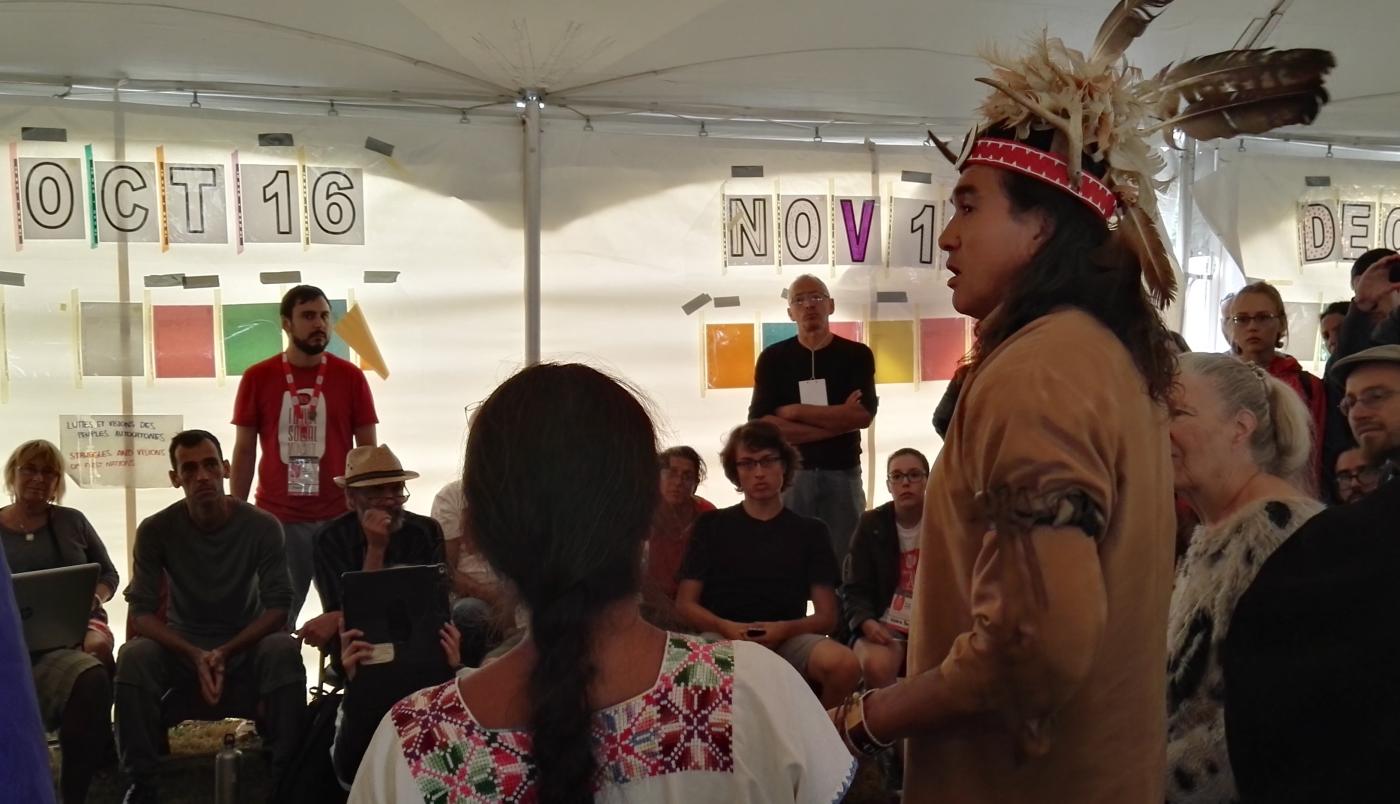By Dinesh Suna and Susan L. Smith*
A delegation from the World Council of Churches (WCC) attended the 12th World Social Forum (WSF) in Montreal, Canada, which concluded on 14 August. More than 30,000 participants from around the world gathered to discuss global issues based on their local experiences, network with others working on similar problems, and create new joint initiatives advancing a progressive path forward. Trade, climate change, clean water, clean energy, environmental justice, land reform and agro-ecology, new media, social financing, ending destructive extractive industry and demilitarization were among the broad array of topics discussed in more than 1,200 workshops.
Several workshops were organized by Oikotree. In addition, Brot fur die Welt, the globally-active development organisation of German Protestant churches, was a sponsor of this year’s WSF. The United Church of Canada also organized and supported several workshops and seminars.
The Global Forum on Theology and Liberation, a parallel event, was organized by the ecumenical organisations in Montreal.
On 9 August, participants discussed a water justice strategy during a day-long session sponsored by the Council of Canadians, a grassroots environmental and social justice group, as well as Canadian public service unions. Workshops on various water justice issues, from fracking, tar sands extraction and mining to the human right to water, filled the next three days of the forum.
Oppression and suffering experienced by Christians and others in Palestinian territories occupied by Israel gave rise to several workshops sponsored by the United Church of Canada and the Presbyterian Church USA. Participants discussed the Boycott, Divestment, and Sanctions movement to put an end to Israeli occupation and repressive practices.
Demonstrators from the Jewish Defense League interrupted these workshops while characterizing the workshops as anti-Semitic. In another form of protest, the Canadian government withdrew its support for the WSF over a controversial cartoon with alleged anti-Semitic sentiments.
During one workshop on Palestine, participants recognized the contribution of the WCC “Seven Weeks for Water 2016” Lenten campaign, which provided insight into Palestinian water issues. The Ecumenical Water Network, the water justice policy initiative of the WCC, reaffirmed that it will continue to advocate on behalf of Palestinians who are being deprived of the human right to water and sanitation by Israeli actions in the West Bank and Gaza.
Holding the WSF for the first time in the global north led to much smaller crowds, in part due to Canada's delay or denial of thousands of visas for global south participants, including WCC staff members. Even though final numbers are not yet clear, the WSF organisers say more than half of the expected delegates were denied visas to enter Canada, a majority of them being from the global south. However, the location allowed the forum to focus worldwide attention on local struggles by affected Canadian communities and indigenous peoples to prevent extraction and transportation of shale gas and tar sands, which contribute to climate change.
Athena Peralta and Dinesh Suna, WCC programme executives for Economic and Ecological Justice, attended the forum, and also visited WCC member churches and organisations in Canada.
* Dinesh Suna is the coordinator of the WCC's Ecumenical Water Network (EWN). Prof. Susan L. Smith is a member of the EWN's international reference group.







